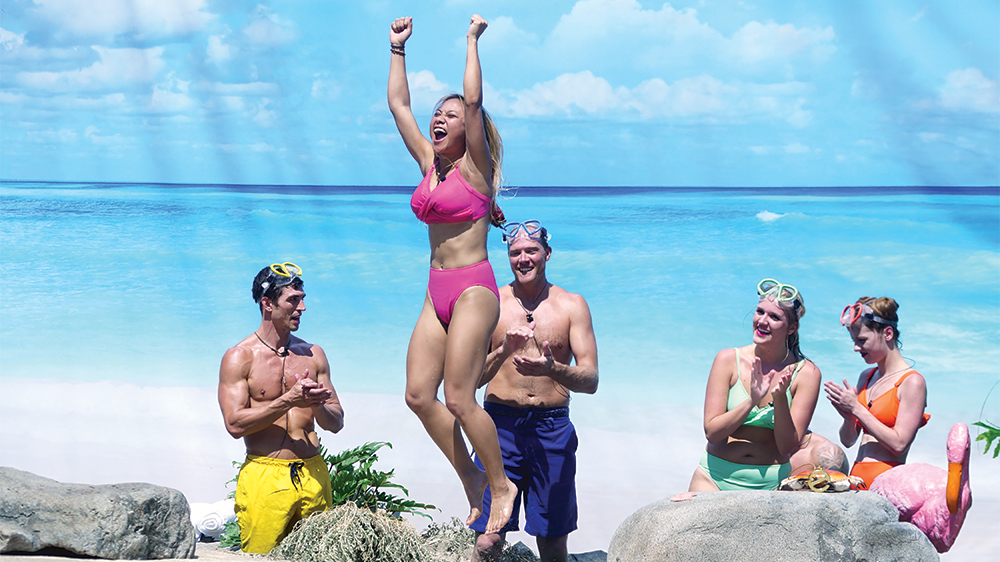Reality Show Casting Joins Social-Media Age but Human Judgment’s Still Key
By Calum Marsh
LOS ANGELES (Variety.com) – Since the earliest days of Hollywood, aspiring actors have auditioned for their big break, while agents have pored over headshots and scoured résumés. But there’s one notable arena of screen appearances where the casts being sought aren’t trained thespians but everyday people — the world of TV.
For casting agents, finding the right individuals for unscripted shows, which live or die on the strength of their real-life ensembles, is no easy task.
Robyn Kass has been one of the industry’s most respected reality casting agents since the genre exploded with the arrival of megahits like “Survivor” and “Big Brother,” both of which premiered their U.S. versions on CBS in 2000. Kass was involved with the two shows almost from the beginning. The network recently renewed “Survivor” for additional seasons; “Big Brother” will premiere its 20th season on June 27.
Earlier, Kass had been casting relationship shows such as “ElimiDate” and “The Big Date.” Producers fine-tuning the concept of modern reality turned to her, hoping to use her experience to find dynamic real-world nonactors. “When reality first appeared, it was natural to go to people like me who knew how to form relationships with real people and to get them to tell me about their lives,” she remembers.
In those days the internet was in its infancy, and finding fresh faces wasn’t as straightforward as simply browsing the web. “We walked the streets of Santa Monica or went to nightclubs and bars, talking to people we saw and asking for their phone numbers,” she says. Auditions, meanwhile, were similarly quaint: Folks would mail in videos to prove their mettle. Kass recalls receiving “hundreds and hundreds of packages with letters and VHS tapes” from “Big Brother” hopefuls.
Lynne Spillman vividly remembers those days as well. She was the casting director on the first seasons of “Survivor” and “The Amazing Race” — another CBS reality juggernaut that began airing in 2001. “We used to say making and sending those videos was harder than actually being on the show,” she laughs.
Today, digital processes have become the norm for reality shows; anyone who wants to audition for an unscripted TV program can do so online. It can be as simple as posting a YouTube video. “It’s way easier,” Spillman says. “On the one hand that’s great, because anyone can do it and we get a bigger range of people. On the other hand, we’ve made it so easy that it’s no longer a hoop to jump through. And being on these shows is hard.”
Over the past few years, Kass says, the rise of social media in particular has completely altered the nature of the job — in ways both good and bad. “Before, we would fly out of state to interview contestants. Now we can Skype them in. It’s so easy to get hold of people or to go on social media and find interesting stories or experiences. It has opened up the world to us.”
“I look at their room. I look at their house. I look at all the things they’re not expecting me to.”
Lynne Spillman
Kass has a team of casting agents trawling through Instagram around the clock for people who pique their curiosity — though not everything they find is necessarily what it seems. “Boy, oh boy, do those millennials know how to use filters,” Kass marvels. “On the internet you can post the best of yourself. You’ll see and read just the highlights — and when we meet these people sometimes their life isn’t as interesting as it looked online.” She likens the process to using a dating app: Attractive pictures and a well-worded profile may be a positive sign, but often that leads to disappointment when it comes time to sit and talk face-to-face. Yet thanks to an elaborate vetting process, Kass is able to root out misleading candidates.
Spillman encounters much the same problem when she’s going through submissions for contestants on “The Amazing Race.” “What’s tricky is that because of technology, it’s really easy these days for people to make a fantastic tape with music and quick cuts,” she explains. “People can fool you. They can make a great tape, but that’s not who they are.” So as a precautionary measure she relies on all the information she can glean from online profiles: “I look at their room. I look at their house. I look at all the things they’re not expecting me to.”
Ultimately, casting a good reality-TV show — before or after the advent of social media — comes down to the shrewd judgment of casting directors who know what to look for and can sense which individuals will make for the most exciting television. “Don’t forget: These are normal people, not actors,” Spillman says. For her, the key trait is simple: “They either pop or they don’t. End of story.”

